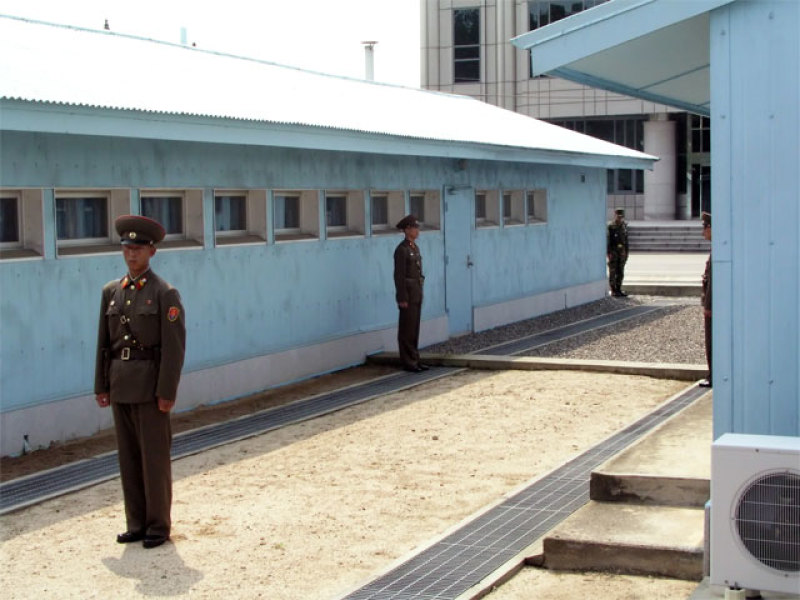
The response from the international community after the death of Otto Warmbier, the 22-year-old who had returned from his detention in North Korea in a coma, has been a mixture of emotions, among them condemnation, sympathy, and concern for the current detainees and for future travel into the reclusive country.
Warmbier was arrested and detained in January of 2016 when he was trying to leave the country, and was accused of trying to steal a propaganda poster. Though he was sentenced to 15 years of hard labor, he was suddenly released and returned home on June 13, at which point he was already in a coma state.
Doctors at the University of Cincinnati Medical Center said they found no signs of physical beating, but that Warmbier had extensive brain tissue damage, possibly caused by a cardiopulmonary arrest.
In a statement, Warmbier's parents noted that Warmbier "looked very uncomfortable "” almost anguished" upon his return from North Korea. However, they added, "within a day the countenance of his face changed "” he was at peace. He was home and we believe he could sense that."
International leaders and politicians have condemned North Korea, with U.S. President Trump calling the incident "a disgrace" and describing the country as "a brutal regime."
South Korean President Moon Jae In, meanwhile, said that "we cannot know for sure that North Korea killed Mr. Warmbier," but that he still believes "it is quite clear that they have a heavy responsibility in the process that led to Mr. Warmbier's death."
"We're praying for Otto's family tonight," tweeted Vice President Mike Pence. "A tragic example of North Korea's disregard for human life."
Many raised concerns regarding the health and condition of those still imprisoned in North Korea, and for the people who live there.
Kenneth Bae, a Korean American missionary who had previously been detained and released, said that he mourns with the Warmbier family, but added that there are others still within North Korea who are in need of help.
"As we grieve Otto's passing, I also want people to know that other Americans remain detained in North Korea right now," said Bae.
"There are three Americans "” Kim Dong Chul, Tony Kim, Kim Hak-Song "” and the Canadian pastor Hyeon Soo Lim. But there are certainly many other people living without freedom in the country of 24 million people "” enduring horrible circumstances and forced labor "” and we do not even know their names."
"We plead with the US government, the international community, and leadership in North Korea to value human lives," Bae continued. "Every life is important "” Otto's life, lives of the American detainees, and the lives of each person in North Korea."
Warmbier's death is the result of a lack of access to basic human rights, said Tomas Ojea Quintana, the UN's special rapporteur on human rights in North Korea. At the time that Warmbier was returned home in a coma state, Quintana said that the incident "serves as a reminder of the disastrous implications of the lack of access to adequate medical treatment for prisoners in the DPRK."
"His ordeal could have been prevented had he not been denied basic entitlements when he was arrested, such as access to consular officers and representation by an independent legal counsel of his choosing," he added.
The Human Rights Watch, which conducts research and advocacy on human rights, said in a statement that "Warmbier's death should be a wake-up call to governments that focus must not just be on security, but also human rights concerns when dealing with Pyongyang."
"Governments around the world must now recognize that they can expect no special treatment from Pyongyang for their detained nationals," the group added. "Only by making human rights a primary demand "” for everyone in North Korea, citizens and foreigners alike "” can they reasonably hope to change Pyongyang's abusive practices."



















